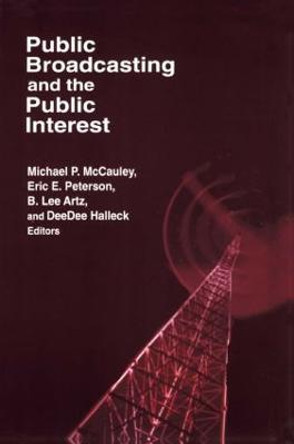Public broadcasting is the single most important social, cultural, and journalistic institution of the twentieth century. In the past fifteen years it has been assaulted politically, ideologically, technologically, and is everywhere in retreat. This book considers the idea of public service broadcasting and examines in detail the assault made upon it with specific emphasis on global developments and events in the United Kingdom, Japan, Europe, and the United States. Michael Tracey argues that public service broadcasting has been a vital and democratically significant institution now experiencing a terminal decline brought about by changes in political, economic, and technological circumstances. Based on years of research and extensive contact with leading public broadcasters around the world the author examines the idea of public service broadcasting and how for the most part it has vainly (and often ineffectually) struggled to survive in recent years . The author concludes that public broadcasting is, as was once said of Weimar is a corpse on leave. Its likely disappearance constitutes an indication of a real and deep-seated crisis within liberal democracy.
ReviewsThis is the book I have been waiting for! Areally dtailed account of the forces threatening PSB, and one that takes full account of this as a global phenomenon with numerous different dimensions. * J. Petley Brunel University *
For readers in the United States, Tracey offers useful and provocative insights on American public television. * James L. McDowell, Perspectives on Political Science, Summer 1999 Vol.28 No.3 *
Book InformationISBN 9780198159254
Author Michael TraceyFormat Hardback
Page Count 320
Imprint Oxford University PressPublisher Oxford University Press
Weight(grams) 680g
Dimensions(mm) 243mm * 162mm * 23mm





